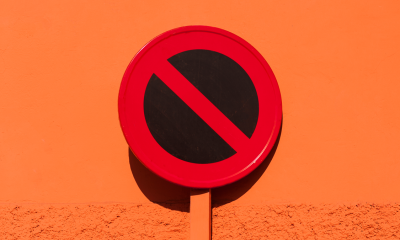Entertainment
The enormous problem with ‘Red Dead Redemption 2’

This article contains spoilers for the entirety of Red Dead Redemption 1 and 2
Throughout the vast, sprawling, seemingly never-ending experience of Red Dead Redemption 2, I found myself asking the same question over and over again: Do I even want any of this?
Do I need my horse’s dynamic testicle physics and shitting patterns? Does having to press R2 multiple times to drink a cup of coffee really add to my immersion in the world? What in god’s name do mercilessly unforgiving collision physics contribute, aside from interruptions to story moments and YouTube fail compilations? How could details like oily and muddy water, custom mounting animations, and farting ever justify the cost of Rockstar Games employees’ 100-hour work weeks?
75 underwhelming hours of my life later, credits rolled on the main story, and the answer to these questions came clear as day: No. I didn’t want any of it. In its haste to give me everything, Red Dead Redemption 2 finds purpose in absolutely nothing.
In its haste to give me everything, Red Dead Redemption 2 finds purpose in absolutely nothing.
The monumental disappointment of Red Dead Redemption 2 stems from the assumption that the sheer extravagance of its excesses bears some sort of inherent artistic value. Yet with quadruple the length, world, music, content, detail, graphical fidelity, etc., Red Dead Redemption 2 achieves far less than half the resonance of its predecessor.
And even that feels like generous math.
Existential crisis courses through the veins of Red Dead Redemption’s universe. In the first game, its revisionist Western film DNA created a story that interrogated the presumed morality, social progress, ideals, and reality of our American dreams.
But the question plaguing the newly released prequel is a more meta one. From its slavish conceit of realism, hubristic bigness, and astounding disinterest in telling a story worth the several dozen hours it demands, Red Dead Redemption 2 fails to justify its own excessive existence.
What is in a prequel?
I get it. Prequel narratives are tough to justify. But few come across as such unabashed, thinly veiled find-and-replace retreads of their originals as Red Dead Redemption 2. Worse still, this game only serves to weaken the accomplishments of what came before it.
Poor Arthur Morgan, the most purposeless protagonist to ever grace a box art cover, was retconned into existence solely to die. You can tell from 3,000 miles away, especially knowing he’s not present nor even mentioned in John Marston’s future.

Sucks to suck?
But that isn’t the only reason it’s tough to invest in him. Let’s try an experiment: Name a single unique characteristic of Arthur Morgan’s that he does not share with John Martson. (Tuberculosis doesn’t count.)
Stop me if you’ve heard this one before: A down-on-his-luck Old West outlaw, known for dead-eye gunslinging, begrudgingly continues to do bad things while trying to justify them as an ultimate good, but with increasing uncertainty. He fights to do one purely good thing, until consequence catches up and he dies.
(The themes surrounding Arthur are similarly faint echoes of the ones in Red Dead Redemption 1, but we’ll get to that later.)
This game so often forgets to give its own protagonist a reason for being, that it’s probably better categorized as a preamble rather than a prequel to John’s story. Its ludicrously long “epilogue” (which spans two parts and multiple hours) makes as much clear.
Poor Arthur Morgan, the most purposeless protagonist to ever grace a box art cover.
But even as a preamble, Red Dead Redemption 2 succeeds only in telegraphing insights and backstory already masterfully implied by the original’s subtext. If anything, this new peek into the Marston family’s genesis highlights a flaw the first game hid well, which is that Abigail and Jack are shallow cardboard cutouts of Wife and Child.
The former is portrayed in Red Dead Redemption 2 as a grotesque cliche of the Old Ball and Chain. With no agency or desires outside of John, Abigail’s presented as little more than a continuous list of shrill demands, ranging from the understandable (yeah, you shouldn’t raise a kid in this environment) to the outlandish (let’s buy this ranch we’ve never seen with our no money and experience — or I’m leaving!).
For most of the game, Jack’s just a representation of innocence contrasting the cruelty of his surroundings. He practically walks around gunfights in a sailor suit while licking a lollipop. Later in the game, he becomes the more fleshed-out human being from the original, with interests outside his father.
Yet another one of Red Dead Redemption 2‘s missed opportunities, though, is any exploration of the one question the first game left us with about Jack. How could a sensitive, shy boy mostly raised on a ranch, who wants nothing to do with outlawing, transform into the cold-blooded killer of the first game’s epilogue?
Now there’s an interesting arc that might’ve actually warranted a revisitation of Red Dead Redemption.
Pass the Dutch
The most compelling justification for the prequel’s existence is Dutch van der Linde, the only character that saves Red Dead Redemption 2‘s story from utter pointlessness. Portrayed only as an omnipresent, villainous specter in the first game, fruitful and unexplored ground remained in telling his origin story.
Inexplicably, though, this isn’t his story and Dutch isn’t the protagonist.
The real shame is all the missed opportunities of showing the Red Dead world from his perspective, which would’ve allowed for a bigger shift in tone, theme, genre, and character arc. Instead, both Arthur and John act as practically interchangeable anti-heroes built for the same nihilistic cynicism that defines the revisionist Western genre.
On the other hand, Dutch represented more of the idealism from classic Western films, initially embodying this intoxicating fantasy of the gunslinger who fights for the moral soul of our American future.

Just in case you missed it in the epigraph, this is repeated several times in the game too
That sounds a lot like the gang’s early glory days we keep hearing about in both Red Dead Redemption 1 and 2. Yet even more inexplicably, we don’t start the prequel with Dutch at his prime, or the gang truly believing in his vision of a way of life that’s morally superior to industrialist progress.
Imagine the game that could’ve been, though, if we (as Dutch) watched our own mask fall, the glory of our idealism crumbling under the pressures of an ever-changing and hostile world.
But originality be damned! Red Dead Redemption 2 opts to open with a literal wall of text explaining that we’ve already reached the Death of the West, when outlaws are being hunted. You know, kinda like the exact same premise of Red Dead Redemption 1.
We’re subjected to (I repeat) a minimum 60 hours of a shitty dude getting shittier
From the very start of the prequel, Dutch is already falling apart at the seams. There are multiple mentions of him unnecessarily and brutally killing a girl. Arthur is already expressing doubts about the ideals that used to make their gang feel like more than just your standard outlaws.
By beginning in the aftermath of a failed robbery, with Dutch and the gang in the midst of moral degradation, the narrative ensures it can do nothing but spin in pointless circles.
We’re subjected to (I repeat) a minimum 60 hours of a shitty dude getting shittier, leaving me to wonder whether the people around him are just that stupid, or just that poorly written. Poor Arthur is left with nothing to do but say 1,001 variations of “I dunno, man, I feel like we already tried that one.”
Before doing the same shit again anyway.
The wrong kind of nihilism
If the infuriating redundancy of Red Dead Redemption 2‘s story is supposed to prove a point, it doesn’t. Is this epic-length journey about the utter banality of outlaw life? Not sure who that message is for if that’s the case.
Or maybe Rockstar wanted to reiterate the original’s spectacular exhibition of the cyclical nature of violence — how this society traps us in our own ethical demise no matter what we choose. That’d justify Arthur’s death, and the switch to John in the epilogue at least.
But the end of Red Dead Redemption 2′s epilogue blows that thematic takeaway to smithereens. Meanwhile, the first game’s epilogue spelled it out with devastating clarity.

I guess this is… cute?
In Red Dead Redemption 1‘s epilogue, John’s son negates everything his father fought for by exacting revenge on the man who killed him — before the title card “REDEMPTION” flashes across the screen, dripping in irony. In Red Dead Redemption 2, John and company miraculously return from exacting their revenge on Micah in one piece, to live out their droll or idyllic post-outlaw dreams.
At the very end, John and Abigail stand on the hill that will eventually become their graves, marveling at their modest fortunes in nauseatingly blissful ignorance.
Who the hell is this cheery ending for, then?
People who’ve played the first game know this new leaf is as much a false start as it is a false ending, since soon government men will come knocking to collect the debts of John’s sins. Or if you’re a new player, the takeaway seems to be, welp, guess it all worked out in the end!
The most stuff in any game ever!
To be fair, there is an initial awe inherent to the sheer scope of Red Dead Redemption 2’s inconceivable vastness.
Like the Vegas Strip, the glut of stuff to do bedazzles: Realistically meticulous hunting! Realistically boring fishing! Realistically unsettling debt collection! Realistically anxious relationships to food and hunger! Realistically involved horse bonding! Realistically cavalier homestead and campsite robbing! Realistically routine grooming! Realistically laborious housework like moving hay! Unrealistic Black Jack!
But like so many other blockbuster games, Red Dead Redemption 2‘s gorgeous expanse is irredeemably cheapened by a mistaken belief that “more” equates to “depth.” As the rush of hunting quality bear pelts wanes, you’re left with a labyrinthine chore of an open world that repeatedly undermines its own intent.
Once the novelty wears off, a creeping, empty joylessness settles in instead. Sure, you can do all these things. But do you even want to do most of them?
You’re left with a labyrinthine chore of an open world that repeatedly undermines its own intent.
Throwing in pointless shit is not what makes a virtual world feel like a lived-in experience. Sicking the cops on players for failures of your own finicky control scheme does not make me empathize with Arthur and the gang’s feeling that outlaws are now being mercilessly hunted.
Red Dead Redemption 2′s selective realism shatters all illusion that its obsequious fetish for details contributes to any sort of immersion in its story.
I don’t even resent Red Dead Redemption 2 for its slowness, or the decided lack of fun embedded into its design philosophy. That’s actually one of its most admirable carryovers from the original game. What irks me, actually, is its failure to even fully commit to this in any meaningful way.
Unlike the first game, the most tedious tasks are left to optional sidebars (chopping wood, feeding chickens, picking up cow shit — you can do it all on your ranch, you psychopath!). Compare that to the forced, grueling boredom of Red Dead Redemption 1’s oft-debated first few hours, which starts with a 15-minute opening cinematic of a man sitting on a train, followed by missions of tiresome ranching, cow wrangling, wagon driving, and pest control.
In that first game, Rockstar opened a blockbuster gunslinging Western with an onslaught of utter mundanity. As a result, we didn’t just learn that this was the dream John Marston was fighting for — giving up the thrill of gunslinging for the slow death of civilized life. We felt it.
By the game’s end, after so many hours of emotionally exhausting murderous rampages, I truly missed those slow, simple early days on Ms. McFarlane’s ranch. So much so that relief washed over me after the final deed was done, Dutch was dead, and Jamie Lidell’s “Compass” played as you rode down a mountain to the modest plot of land you could at last call home.
Before everything is taken from you anyway.

Yay John’s back! Now go pick up some cow shit.
In contrast, an unmistakable arrogance runs through Red Dead Redemption 2‘s self-indulgent, gratuitous bigness, with a wide swath of content that exists to say, “Because we can.” It’s an attitude the game shares with the very post-industrial capitalism the series purportedly critiques.
Maybe that’s the big, post-meta-modernist joke for Rockstar’s creative leaders: To tell a story lamenting everything the cavernous black hole of American capitalism destroys, from within a game that in every way indulges our same insatiable greed for more — whether or not we want, need, or even benefit from it.
Maybe they knew we’d buy this distended monstrosity of excess no matter what, so they fed us back our own gluttony like the virtual equivalent of a human centipede eating its own shit.
Or, you know, maybe its executives just wanted more money.
The biggest, most beautiful waste
If it wasn’t already apparent, the ferocity of my disappointment in Red Dead Redemption 2 comes from a place of pure love.
Rockstar’s original masterpiece is, in no small part, responsible for my decision to make video games my career. The preciousness I (and many others) feel toward it leaves no easy task for the act that followxs. If I cared less, I wouldn’t bother giving this prequel the respect of taking it extremely seriously.
From where I’m standing, Rockstar looks a lot like Dutch van der Linde
Red Dead Redemption 2 has succeeded in capturing the large majority of our cultural zeitgeist. For many, its escapism is a gift that keeps on giving. But I can’t shake the feeling that its failures and breathlessly glowing reception spell out something sinister for how we judge the art of video games.
From where I’m standing, Rockstar looks a lot like Dutch van der Linde, the idealism that made it so singular back in the day now deteriorating into an unchecked excess of hubris. And based on reports of how its leaders treat employees who endure it out of belief in their vision, that metaphor doesn’t feel like much of a stretch at all.
At least when it comes to Red Dead Redemption 2, it’s a game that sure can talk pretty — but we’re fools to believe its promise lead us anywhere but to the grave.

!function(f,b,e,v,n,t,s){if(f.fbq)return;n=f.fbq=function(){n.callMethod?
n.callMethod.apply(n,arguments):n.queue.push(arguments)};if(!f._fbq)f._fbq=n;
n.push=n;n.loaded=!0;n.version=’2.0′;n.queue=[];t=b.createElement(e);t.async=!0;
t.src=v;s=b.getElementsByTagName(e)[0];s.parentNode.insertBefore(t,s)}(window,
document,’script’,’https://connect.facebook.net/en_US/fbevents.js’);
fbq(‘init’, ‘1453039084979896’);
if (window._geo == ‘GB’) {
fbq(‘init’, ‘322220058389212’);
}
if (window.mashKit) {
mashKit.gdpr.trackerFactory(function() {
fbq(‘track’, “PageView”);
}).render();
}
-

 Business7 days ago
Business7 days agoFormer top SpaceX exec Tom Ochinero sets up new VC firm, filings reveal
-

 Business6 days ago
Business6 days agoConsumer Financial Protection Bureau fines BloomTech for false claims
-

 Business4 days ago
Business4 days agoLangdock raises $3M with General Catalyst to help businesses avoid vendor lock-in with LLMs
-

 Entertainment4 days ago
Entertainment4 days agoWhat Robert Durst did: Everything to know ahead of ‘The Jinx: Part 2’
-

 Business6 days ago
Business6 days agoKlarna credit card launches in the US as Swedish fintech grows its market presence
-

 Entertainment3 days ago
Entertainment3 days agoThis nova is on the verge of exploding. You could see it any day now.
-

 Business3 days ago
Business3 days agoIndia’s election overshadowed by the rise of online misinformation
-

 Entertainment6 days ago
Entertainment6 days agoHow to set boundaries in the early stages of dating





















